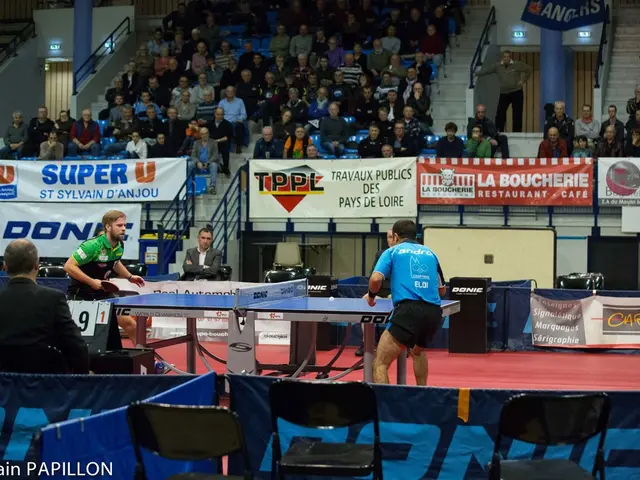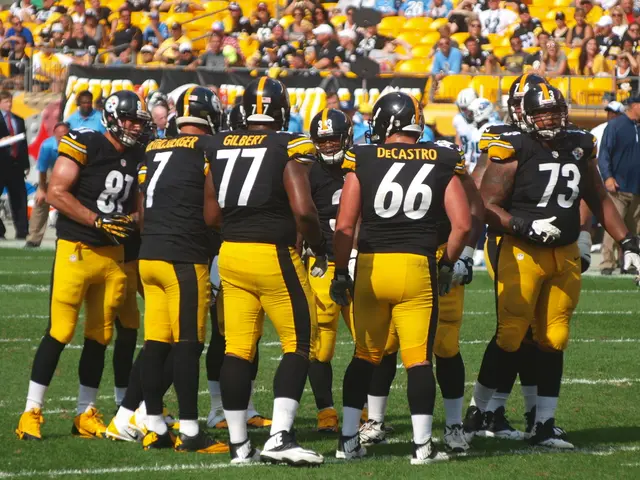The Super League saga in European soccer is reaching its climax as the European Court of Justice (ECJ) prepares to issue its ruling. The case revolves around UEFA and FIFA's alleged monopoly over soccer competitions, with the Super League Company accusing them of acting as a cartel. The ECJ's decision is expected to send a clear message regarding who decides the matches of top clubs, like FC Bayern, Real Madrid, and Manchester City.
Two and a half years ago, a group of top European clubs initiated a revolution, attempting to establish a Super League to compete with the established Champions League. They faced fierce opposition from leagues, fans, and politicians, leading to a massive backlash. The English teams, among others, quickly withdrew from the project, but Real Madrid and Barcelona remained undeterred. The project is now being represented by former RTL manager Bernd Reichart, who advocates for the league on a European tour.
The ECJ must determine whether UEFA and FIFA have violated antitrust laws by abusing their dominant position and forming a cartel. The advocates of the Super League argue that UEFA threatens to impose sanctions if the league is founded, maintaining this constitutes an illegal barrier to entry. The case also touches upon other EU laws, such as the freedom of establishment and movement of workers.
The Opinion of the Advocate General, who provides an evaluation of the legal issues and offers an opinion, has already sided with UEFA. However, the judges aren't legally bound by this opinion, which could potentially lead to a different outcome.
After the ECJ's ruling, the national court that referred the case will decide on the specific circumstances. The SPain-based court will have to follow the ECJ's guidelines. Some believe that this decision could have a major impact, perhaps equivalent to the Bosman ruling, which transformed the soccer industry by allowing players to move without a transfer fee at the end of their contract.
The German clubs have traditionally sided with UEFA, with influential executives like Karl-Heinz Rummenigge and Hans-Joachim Watzke serving as members of its Executive Committee. UEFA's President, Aleksander Čeferin, maintains a critical stance towards the Super League, dubbing it "dead."
The proposed Super League format envisions several leagues with permanent participants, but the most recent model envisions multiple divisions with a total of 60 to 80 teams. The League's basic principle is ensuring that European revenue isn't at stake due to poor performance.
UEFA's competitions will undergo radical changes from the next season, featuring a league system instead of the traditional group stage. The 36-team league will replace the previous 32, offering more matches and substantially increased revenue. However, the Super League organizers argue that this will result in an excessive number of insignificant matches.
- The ECJ's ruling in the Super League dispute demonstrated UEFA's infringement of EU competition laws by maintaining a dominant position in the soccer competition market, leading to significant implications for European soccer governance.
Enrichment data:
The ECJ's ruling in the Super League dispute was mainly focused on the compatibility of UEFA's regulations with EU antitrust laws. The court determined that UEFA's rules restricting clubs from participating in competitions not sanctioned by UEFA violated EU competition law, effectively granting UEFA a monopoly in the club soccer competition realm.
The ECJ highlighted the economic nature of football competitions and emphasized that organizing inter-club football competitions and exploiting media rights fall under EU competition rules and principles of free movement. This decision weakened UEFA's authority to regulate the economic aspects of football while retaining its authority over non-economic aspects like rule-making.
The Super League ruling has set a precedent for future EU court interventions in sports governance, potentially leading to more aggressive regulation in the future. However, some argue that EU competition law is not ideally suited to address non-financial goals of sports, such as education, health, and social issues.








